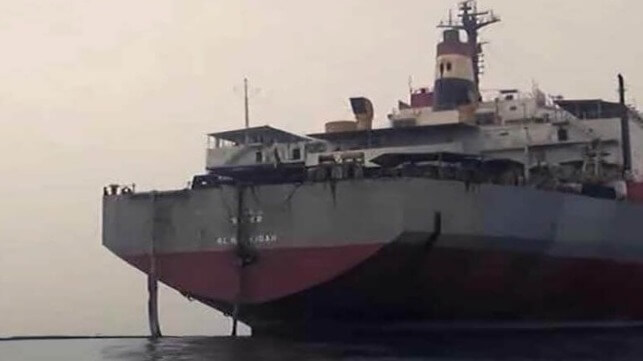Fundraiser for FSO Safer Salvage Fails to Reach UN Target

The latest international efforts to raise monies to fund the UN-sponsored salvage operation of the FSO Safer off the coast of Yemen failed to reach its targets on Thursday, leaving the United Nations urgently appealing for additional donations. The UK and Netherlands co-hosted a fundraising event that it was hoped would close the gap as the assets required for the operation are nearly on-site.
Reports are citing different amounts of funds pledged during today’s co-sponsored event but all agree it failed to reach the target of $29 million needed for the emergency phase of the operation. The UN had been able to grow the available funding to $99 or $100 million before today’s conference. Costs for the plan increased in part due to the rebound in the global oil markets. The UN earlier said that the cost of the replacement oil tanker increased with the final agreement being for $55 million to acquire a VLCC Nautica from Euronav.
UN officials thanked the participants in today’s event reporting that Egypt, France, Italy, Luxembourg, Malta, Norway, the Republic of Korea, the United Kingdom, and private company Octavia Energy and its subsidiary, Calvalley Petroleum, announced pledges totaling almost $8 million, of which $5.6 million represents new funding. The UK issued a statement after the conference however saying that the event had raised over $7.54 million. The UK’s Minister for Development Andrew Mitchell is quoted as announcing the UK would provide an additional £2.5 million ($3.14 million) bringing the UK’s total commitment to £8 million ($10 million). However, it is unclear from the statement if that is in addition to the total raised from the event or part of the reported £6 million ($7.54 million).
In the statement after the conference, the UK Foreign, Commonwealth & Development Office said, “The United Nations can now start the operation to transfer the oil onto a replacement vessel and resolve the immediate threat.”
The UN calculates that it has now raised $105.2 million for the emergency phase of the operation to remove the oil from the FSO Safer. The monies raised includes more than $260,000 in contributions from the public through a UN crowdfunding campaign. This leaves $23.8 million for the emergency phase unfunded. An additional $19 million is required for the critical second phase, comprising the installation of a catenary anchor leg mooring buoy and the tethering of the replacement vessel to it, as well as the towing of the FSO Safer to a green salvage yard for recycling.
Speaking at the UN’s briefing, deputy spokesperson Farhan Haq said that the work could begin by the end of this month. He is being quoted as saying the financial need is “crucial” in order to let the UN complete the task that has begun. Haq noted that the UN can not sell the oil aboard the Safer to pay for the operation. The rebels that control that region of Yemen claim ownership of the approximately 1.1 million barrels of oil stored aboard the Safer. Pressed by reporters on how the UN would proceed, he said, "We’re going to do as much we can right away, and we’ll see what we can do to get the necessary funding."
The shortfall in today’s fundraising effort comes as the VLCC Nautica has nearly arrived in the region. The vessel’s AIS signal shows that it is traveling off the south coast of Yemen, although under the plan it is to proceed to neighboring Djibouti on the eastside of the Gulf of Aiden. The tanker is scheduled to remain there while the first phase of the operation stabilizes the Safer and prepares its tanks for the ship-to-ship oil transfer.
The UN Development Programme also has a contract with Boskalis for its SMIT division to manage the salvage operation. SMIT’s vessel the Ndeavor is due to reach Port Said, Egypt on May 13. After the transit of the Suez Canal, the plan calls for the vessel to make final preparations, including loading additional equipment and personnel, also in Djibouti. It would then proceed to the FSO Safer and begin with a visual survey followed by efforts to place a portable inert gas generator aboard the Safer to stabilize the storage tanks which have not been properly vented in years. The crew aboard the SMIT vessel will be measuring the levels of toxic gases and based on their inspection of the cargo and inert gas lines, valves and manifolds, have said they might have to refine the salvage plan.
The Dutch Minister for Foreign Trade and Development Cooperation Liesje Schreinemacher co-host of today’s fundraiser commented calling on the rest of the international community and the private sector to work together to secure the remaining funding necessary to fully cover the costs incurred by the UN and provide a long-term solution for the tanker.
No comments:
Post a Comment